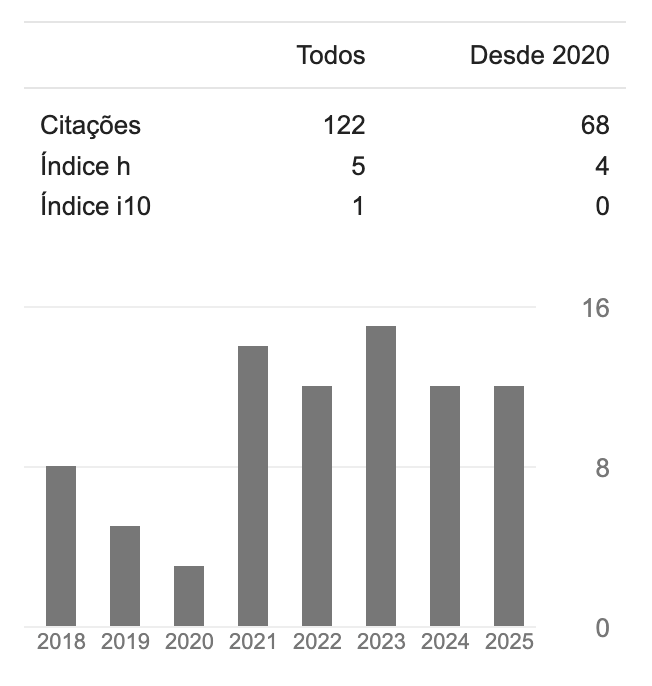Submissões
Condições para submissão
Como parte do processo de submissão, os autores são obrigados a verificar a conformidade da submissão em relação a todos os itens listados a seguir. As submissões que não estiverem de acordo com as normas serão devolvidas aos autores.- A contribuição é original e inédita, e não está sendo avaliada para publicação por outra revista; caso contrário, deve-se justificar em "Comentários ao editor".
- O arquivo da submissão está em formato Microsoft Word, OpenOffice ou RTF.
- URLs para as referências foram informadas quando possível.
- O texto está em espaço simples; usa uma fonte de 12-pontos; emprega itálico em vez de sublinhado (exceto em endereços URL); as figuras e tabelas estão inseridas no texto, não no final do documento na forma de anexos.
- O texto segue os padrões de estilo e requisitos bibliográficos descritos em Diretrizes para Autores, na página Sobre a Revista.
- A contribuição é original e inédita, e não está sendo avaliada para publicação por outra revista; caso contrário, deve-se justificar em "Comentários ao editor".
- O arquivo da submissão está em formato Microsoft Word, OpenOffice ou RTF.
- URLs for references were provided when possible.
- O texto está em espaço simples; usa uma fonte de 12-pontos; emprega itálico em vez de sublinhado (exceto em endereços URL); as figuras e tabelas estão inseridas no texto, não no final do documento na forma de anexos.
- O texto segue os padrões de estilo e requisitos bibliográficos descritos em Diretrizes para Autores, na página Sobre a Revista.
Artigos
Política padrão de seçãoDeclaração de Direito Autoral
Informações:
- Autores mantém os direitos autorais e concedem à revista o direito de primeira publicação, com o trabalho simultaneamente licenciado sob a Creative Commons by 4.0 que permite o compartilhamento do trabalho com reconhecimento da autoria do trabalho e publicação inicial nesta revista.
- Autores têm autorização para assumir contratos adicionais separadamente, para distribuição não-exclusiva da versão do trabalho publicada nesta revista (ex.: publicar em repositório institucional ou como capítulo de livro), com reconhecimento de autoria e publicação inicial nesta revista.
- Autores têm permissão e são estimulados a publicar e distribuir seu trabalho online (ex.: em repositórios institucionais ou na sua página pessoal) a qualquer ponto antes ou durante o processo editorial, já que isso pode gerar alterações produtivas, bem como aumentar o impacto e a citação do trabalho publicado.
- Nenhuma taxa ou contribuição será solicitada aos autores. A revista não cobra nenhum tipo de valor nem a seus autores, nem a seus leitores. Nossa política é de incentivo ao compartilhamento público e livre do conhecimento.
Política de Privacidade
Os nomes e endereços informados nesta revista serão usados exclusivamente para os serviços prestados por esta publicação, não sendo disponibilizados para outras finalidades ou a terceiros. Em conformidade com as boas práticas da ciência aberta, informamos que é necessário mencionar qualquer conflito de interesse existente, bem como inserir o referenciamento e a disponibilização dos dados utilizados e gerados pela pesquisa, código de programa de processamentos de dados e outros materiais subjacentes ao texto para efeitos de avaliação, reuso e reprodutibilidade.
The names and addresses given in this magazine will be used exclusively for the services provided by this publication and will not be made available for other purposes or to third parties. In accordance with good open science practices, we inform you that it is necessary to mention any existing conflict of interest, as well as insert the referencing and availability of data used and generated by the research, data processing program code and other materials underlying the text for evaluation, reuse and reproducibility purposes.










